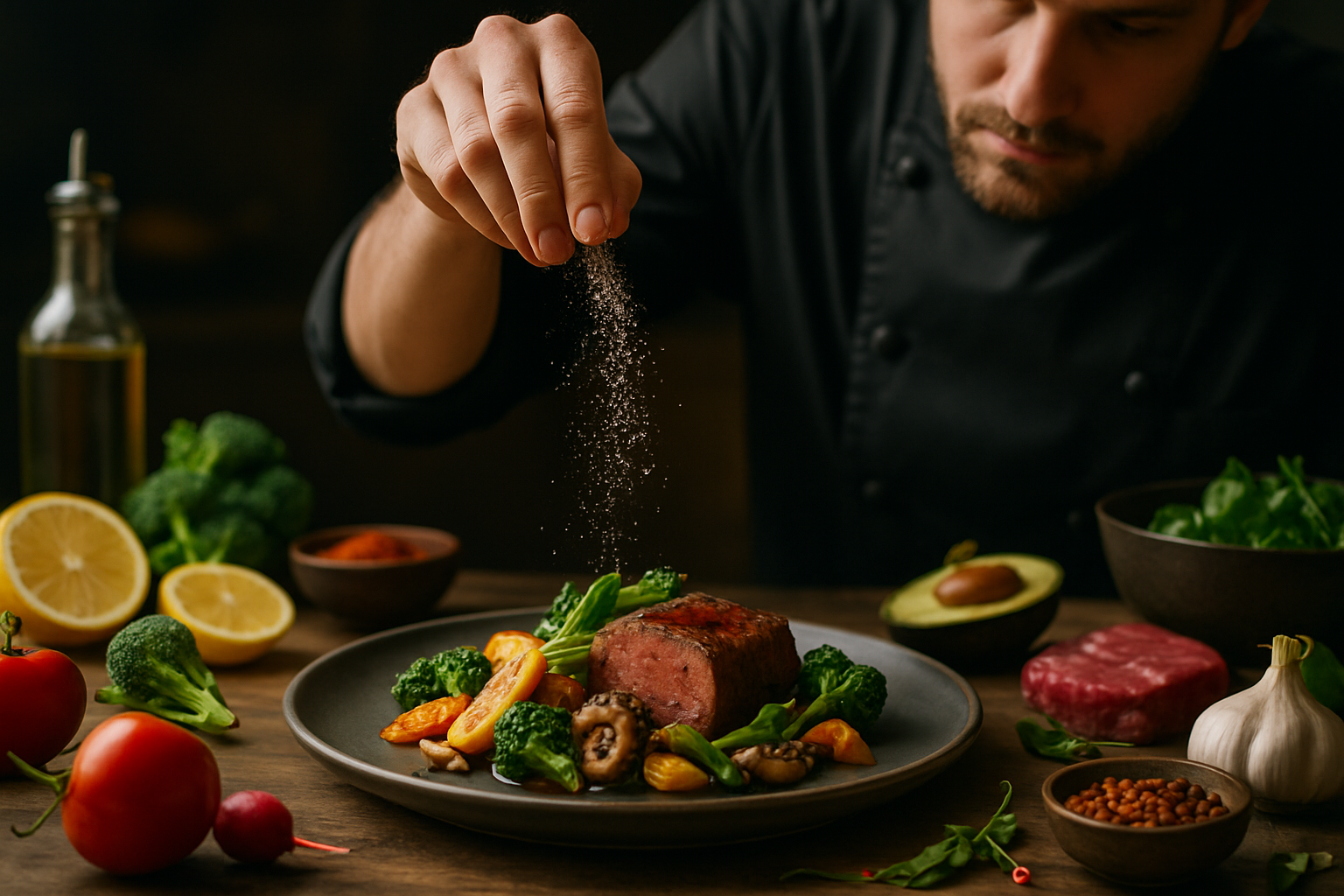Culinary Alchemy: Transforming Humble Ingredients into Gourmet Delights
Discover the art of elevating ordinary ingredients into extraordinary dishes. This culinary journey explores innovative techniques and creative combinations that turn simple staples into restaurant-worthy meals. From reimagining pantry basics to unlocking hidden flavors, we'll delve into the world of culinary alchemy that will transform your home cooking.

Texture Transformations
Texture plays a crucial role in how we perceive and enjoy food. By manipulating the texture of familiar ingredients, you can create entirely new dining experiences. Transform crisp vegetables into silky soups using a high-powered blender, or turn tough cuts of meat into tender delicacies through slow-cooking techniques. Experiment with molecular gastronomy techniques like spherification to create bursting pearls of flavor, or use tapioca maltodextrin to turn liquid fats into powders. Even simple tricks like toasting nuts or seeds can add a delightful crunch to salads and desserts. By focusing on texture, you can elevate even the most basic ingredients into gourmet territory.
Flavor Infusions and Extractions
Infusing flavors into oils, vinegars, and spirits is an excellent way to add complexity to your dishes. Create herb-infused oils by gently heating olive oil with fresh herbs, or make flavored vinegars by steeping fruits and spices in white wine vinegar. These infusions can be used in dressings, marinades, or as finishing touches to elevate simple dishes. For a more advanced technique, try using a cream whipper to create rapid infusions. This method allows you to infuse flavors into liquids in minutes rather than hours or days. Experiment with unique combinations like lavender-infused honey or chili-infused tequila to add unexpected twists to your culinary repertoire.
Reimagining Leftovers
Transforming leftovers is perhaps the ultimate form of culinary alchemy. Instead of reheating yesterday’s meal, use it as a base for an entirely new dish. Turn leftover roasted chicken into a flavorful chicken salad with the addition of fresh herbs and a tangy dressing. Use day-old bread to create a rustic panzanella salad or a comforting bread pudding. Leftover rice can be transformed into crispy arancini balls or a savory fried rice. The key is to think creatively and consider how different cooking methods and additional ingredients can breathe new life into your leftovers. This approach not only reduces food waste but also challenges you to think like a professional chef.
The Art of Plating
Presentation can elevate even the simplest dishes to gourmet status. Learn the basics of food styling and plating techniques to transform your home-cooked meals into restaurant-worthy creations. Start by choosing the right plate – white plates often make colors pop, while textured or colored plates can complement certain dishes. Use odd numbers when plating elements, as this is more visually appealing. Experiment with height by stacking components or using garnishes to add vertical interest. Sauce can be used not just for flavor but as a decorative element – try dots, smears, or swooshes to add visual appeal. Remember, negative space is just as important as the food itself, so don’t overcrowd the plate.
Culinary Alchemy Tips & Facts
• Caramelization and the Maillard reaction are two chemical processes that significantly enhance flavor in cooking.
• Sous vide cooking can transform tough cuts of meat into tender, flavorful dishes by cooking at precise temperatures for extended periods.
• Aquafaba, the liquid from canned chickpeas, can be whipped into a vegan substitute for egg whites in meringues and mousses.
• Fermenting vegetables not only preserves them but also creates complex flavors and beneficial probiotics.
• Using a microplane to grate hard cheeses, chocolate, or citrus zest can dramatically change their texture and dispersal in a dish.
In conclusion, culinary alchemy is about more than just following recipes – it’s about understanding the science of cooking and using creativity to transform humble ingredients into extraordinary meals. By mastering these techniques and approaches, you can elevate your home cooking to new heights, impressing guests and satisfying your own culinary curiosity. Remember, the most important ingredient in any dish is imagination – so don’t be afraid to experiment and let your creativity shine in the kitchen.




